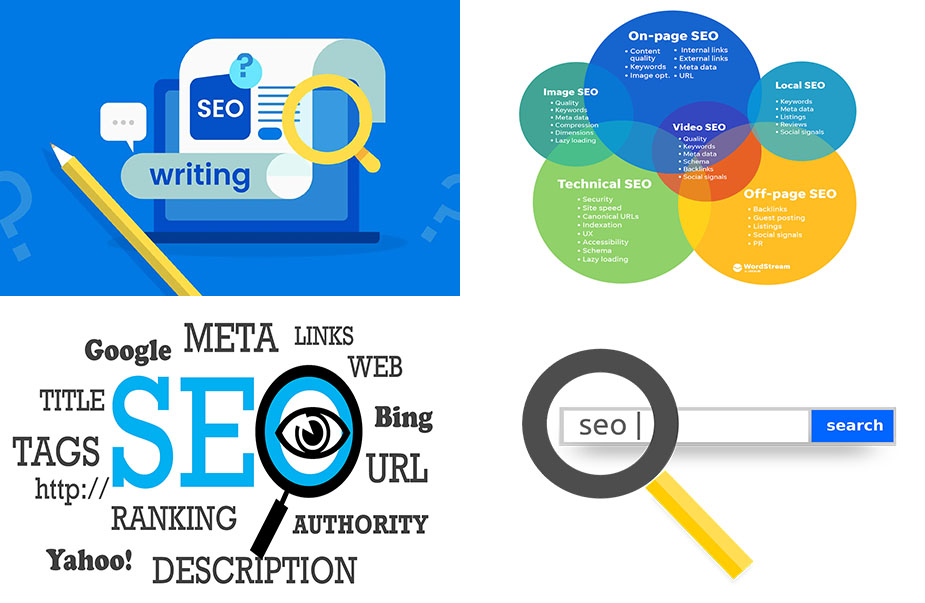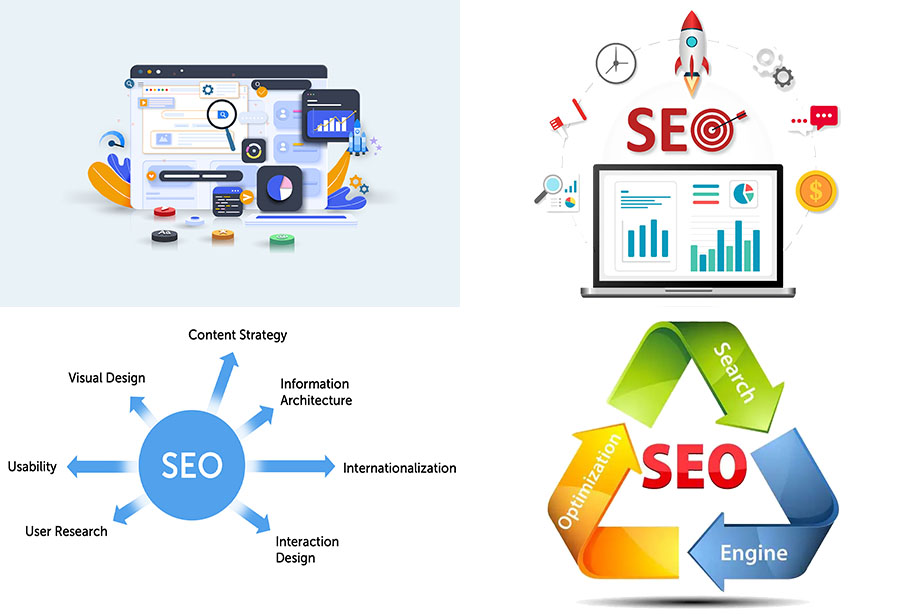
Search Engine Optimization (SEO) is a dynamic and crucial aspect of digital marketing that continues to shape the online visibility and success of businesses. In the ever-evolving landscape of the internet, understanding and implementing effective SEO strategies is essential for any website aiming to rank higher on search engine results pages (SERPs). This comprehensive guide explores the fundamentals, strategies, and best practices of SEO, shedding light on its significance in the contemporary digital era.
SEO is a multifaceted discipline encompassing various techniques aimed at improving a website's visibility on search engines like Google, Bing, and Yahoo. The primary goal is to enhance organic (non-paid) search results, driving targeted traffic and improving the overall user experience.
On-Page SEO
On-page SEO involves optimizing individual pages to rank higher and earn more relevant traffic. This includes optimizing content, HTML tags, images, and ensuring a seamless user experience. Keyword research plays a pivotal role in identifying terms and phrases potential visitors might use to find your content.
Off-Page SEO
Off-page SEO focuses on activities outside the website to improve its authority and credibility. Building high-quality backlinks from reputable websites, social media marketing, and influencer collaborations are essential off-page strategies.
Technical SEO
Technical SEO involves optimizing the technical aspects of a website to improve its crawlability and indexability by search engines. This includes optimizing site speed, mobile-friendliness, fixing crawl errors, and creating a sitemap.
Local SEO
For businesses with a physical presence, local SEO is crucial. This includes optimizing your website for local search terms, creating a Google My Business profile, and obtaining positive reviews.
Content Marketing
Content and SEO go hand in hand. Quality content that provides value to users is more likely to attract backlinks and rank higher on search engines. Creating an effective content strategy involves a mix of blog posts, articles, videos, infographics, and more.

Keyword Research
Thorough keyword research lays the foundation for an effective SEO strategy. Identify relevant keywords with a balance of search volume and competition to target in your content.
User Experience (UX)
Google prioritizes websites that provide a positive user experience. Factors such as page load speed, mobile responsiveness, and intuitive navigation contribute to better rankings.
Link Building
High-quality backlinks from authoritative websites signal to search engines that your content is trustworthy and valuable. However, focus on quality over quantity, as spammy backlinks can harm your site's reputation.
Content Optimization
Optimize your content for search engines by strategically placing keywords in titles, headers, and throughout the content. Ensure readability and relevance for human users.
Technical Optimization
Regularly audit and optimize technical aspects such as site speed, crawl errors, and mobile responsiveness. A well-optimized website is more likely to rank higher on search engines.
Artificial Intelligence (AI) and Machine Learning
Search engines are increasingly using AI and machine learning algorithms to understand user intent and deliver more accurate search results. Optimizing for user intent rather than specific keywords is becoming crucial.
Voice Search Optimization
With the rise of voice-activated devices, optimizing content for voice search is gaining prominence. Conversational and natural language in content is essential for capturing voice search queries.
Video SEO
Video content continues to dominate online consumption. Optimizing videos for search engines by providing detailed descriptions, relevant tags, and transcripts is essential for better visibility.
Mobile-First Indexing
Google has shifted to mobile-first indexing, prioritizing the mobile version of websites for ranking. Ensuring your site is mobile-friendly is no longer optional.
E-A-T (Expertise, Authoritativeness, Trustworthiness)
Google emphasizes E-A-T as a ranking factor, particularly for content that can impact a person's well-being. Establishing expertise, authoritativeness, and trustworthiness in your content is crucial.

Keyword Stuffing
Overusing keywords in an attempt to manipulate search engine rankings can lead to penalties. Focus on natural and meaningful incorporation of keywords.
Ignoring Mobile Optimization
With the majority of internet users on mobile devices, neglecting mobile optimization can significantly hinder your SEO efforts.
Neglecting Technical SEO
Ignoring technical aspects like site speed, crawl errors, and broken links can negatively impact your site's performance on search engines.
Duplicate Content
Having identical or substantially similar content across multiple pages can confuse search engines and dilute your site's authority.
Ignoring Analytics
Regularly monitoring and analyzing website performance through tools like Google Analytics is crucial for refining and improving your SEO strategy.
In the rapidly evolving landscape of online business and digital marketing, SEO remains a cornerstone for success.
Implementing a comprehensive SEO strategy that adapts to emerging trends and aligns with best practices is essential for achieving sustainable online visibility and driving targeted organic traffic.
By understanding the intricacies of SEO, businesses can position themselves favorably in search engine rankings, ultimately contributing to their overall growth and success in the digital realm.


